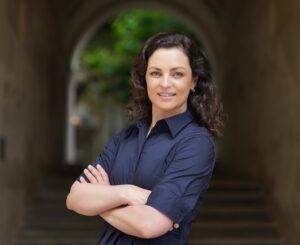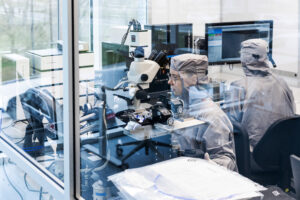From the first European Union (EU) Framework Programme for Research and Innovation to the current 9th European Horizon Programme, KTU has been ranked first in the funding it has won among all Lithuanian participating institutions. The total funding attracted is EUR 33.2 million.
This was the message emphasised by representatives of the European Commission (EC) at an event organised by the Lithuanian Science Council in Kaunas at the beginning of the year.
Kaunas University of Technology (KTU) has been awarded this funding through competitive calls for proposals for 160 projects from the first EU Framework Programme to the current European Horizon Programme. Lithuanian participants have been involved in the EU-funded research since the EU’s 4th Framework Programme for Research and Innovation.
AI solutions for sustainable living and working
According to Vilma Karoblienė, Head of the KTU Research and Innovation Project Centre, the European Commission representatives revealed data analysing the experience of all Lithuanian participants in the programmes.
“Participation in this programme provides excellent opportunities for researchers from universities or other institutions to develop and implement project ideas from inception through to the implementation of concrete results, and sometimes to the delivery of real products to stakeholders. This is a great opportunity to conduct research and innovation activities with best partners across Europe and to increase the competitive edge of not only the institution involved but also the country as a whole,” says Karoblienė.
According to her, some of the most impressive examples, which will undoubtedly have a significant impact not only on the universities, and the city but also on the country, are the first two projects won by Lithuania and funded under the “Widening participation and spreading excellence” sub-programme of the European Horizon. KTU participates in both projects, one as a coordinator and the other as a partner. The project “Centre of Excellence of AI for Sustainable Living and Working” (SustAInLivWork), coordinated by KTU, runs from September 2023 to August 2029.
“This project will play an important role in the development and application of AI-based science and innovation solutions in industry, energy, health or transport. It will also contribute to the sustainable development of the project participants’ activities in creating cutting-edge AI solutions and responding to society’s needs for scientific products. The project will create synergies between business and the public sector, and act as a model for the development of Lithuanian science, technology and innovation culture. This centre aims to promote and develop interdisciplinary, ethical and long-term research in the field of artificial intelligence, with a view to its application in the fields of industry, energy, health and transport,” says the Head of the KTU Research and Innovation Project Centre.
The project is being carried out with other Lithuanian universities (Lithuanian University of Health Sciences, Vytautas Magnus University and Vilnius Gediminas University of Technology), as well as with international partners – Tampere University (Finland) and Hamburg University of Technology (Germany).
13 million euros allocated for 29 European Horizon projects
According to Karoblienė, another exceptional achievement is KTU’s participation in one of the first projects of the European Innovation Council’s EIC Pathfinder Challenge programme in Lithuania, “DNA Microfactory for Autonomous Archiving (DNAMIC)”. The project started in October 2023 and will run until September 2026.
Together with Genomika company, which is the project coordinator, the project is being carried out by the KTU Prof. K. Baršauskas Ultrasound Institute, and the project aims to develop a stand-alone solution for archiving the data in DNA structures based on low power consumption.
According to Karoblienė, the above-mentioned are just a few examples of the projects that KTU is working on under the European Horizon Programme. Information about successful projects changes constantly, as the University’s scientists and researchers actively submit applications.



